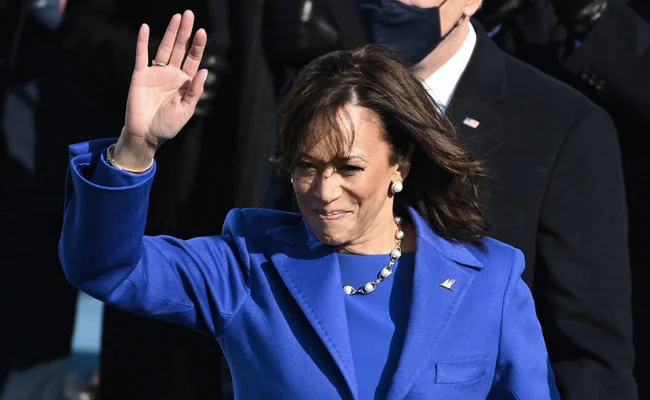In the dynamic landscape of American politics, the question of who will be the next President of the United States always looms large. With each election cycle comes speculation, analysis, and fervent debate surrounding the candidates vying for the highest office in the land. As the country navigates through many challenges and opportunities, from economic recovery to social justice reform, the choice of leadership becomes increasingly crucial. In this article, we delve into the current political climate, examining the frontrunners, their platforms, and the factors influencing their favorability in the race to the White House.
Understanding the Electoral Landscape
Before diving into the specifics of potential candidates, it’s essential to grasp the broader electoral landscape shaping the upcoming presidential election. The American political system is characterized by its electoral college, wherein each state is allocated a certain number of electoral votes based on its population. This system adds layers of complexity to the electoral process, as candidates must strategize to secure a majority of these electoral votes to win the presidency. Additionally, factors such as voter turnout, swing states, and campaign funding play pivotal roles in determining the outcome of the election.
Front-runners in the Race
As of the latest polling data and political analysis, several prominent figures emerge as frontrunners in the race for the presidency. These individuals, representing various political parties and ideologies, have captured the attention of voters and pundits alike with their campaigns and policy proposals.
Candidate A:
With a long history in politics and a track record of legislative achievements, Candidate A has positioned themselves as a formidable contender for the presidency. Their platform emphasizes economic revitalization, healthcare reform, and environmental stewardship, resonating with a broad spectrum of voters across the country. Additionally, Candidate A’s experience in foreign policy and diplomacy lends credibility to their candidacy, particularly in an era marked by geopolitical challenges and uncertainty.
Candidate B:
A relative newcomer to the national stage, Candidate B has quickly gained traction with their bold vision for the future of America. Championing progressive policies such as universal healthcare, student debt relief, and criminal justice reform, they have galvanized a passionate base of supporters, particularly among younger demographics. Despite facing criticism from opponents, Candidate B’s message of inclusivity and social equity has struck a chord with many disillusioned voters seeking systemic change.
Candidate C:
Hailing from a background in business and entrepreneurship, Candidate C offers a unique perspective on governance and leadership. Their campaign focuses on economic prosperity through deregulation and tax cuts, promising to stimulate job growth and innovation. While some applaud Candidate C’s outsider status and business acumen, others raise concerns about their lack of political experience and potential conflicts of interest. Nevertheless, their populist appeal and promise to “drain the swamp” resonate with a segment of the electorate disenchanted with traditional politicians.
Factors Influencing Favorability
Several factors contribute to a candidate’s favorability in the eyes of the electorate. These include policy positions, charisma, electability, and the ability to inspire trust and confidence among voters.
Policy Positions:
One of the primary determinants of a candidate’s favorability is their stance on key issues facing the nation. Voters closely examine where candidates stand on topics such as healthcare, immigration, climate change, and gun control, among others. Candidates who articulate clear, coherent policy proposals that resonate with the concerns of the electorate are more likely to garner support.
Charisma:
Charisma plays a significant role in shaping public perception of a candidate. Charismatic leaders have the ability to inspire and mobilize supporters, energizing them to actively participate in the electoral process. Whether through compelling speeches, relatable personal anecdotes, or engaging social media presence, candidates who exude charisma often enjoy a competitive advantage in the race for the presidency.
Electability:
In a highly polarized political environment, electability is a crucial consideration for voters, particularly those who prioritize defeating the opposing party over ideological purity. Candidates who are perceived as having a realistic chance of winning the general election are more likely to attract support from pragmatic voters who prioritize practical outcomes over ideological purity.
Trust and Confidence:
Trustworthiness and integrity are essential qualities that voters look for in a presidential candidate. In an era marked by skepticism towards politicians and institutions, candidates who demonstrate honesty, transparency, and a commitment to serving the public interest are viewed favorably by voters. Conversely, candidates plagued by scandals, controversy, or perceived ethical lapses may struggle to gain traction with the electorate.
Conclusion
As the nation approaches the next presidential election, the question of who will occupy the Oval Office remains uncertain. While polling data and political analysis offer insights into the frontrunners and factors influencing their favorability, the dynamics of American politics are inherently unpredictable. Ultimately, it will be up to the voters to decide the fate of the nation by casting their ballots for the candidate they believe is best equipped to lead the country forward. In the meantime, the speculation and anticipation surrounding the race for the presidency will continue to captivate the attention of the American public and the international community alike.




